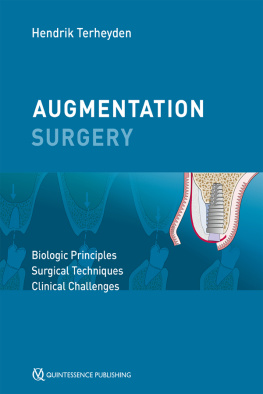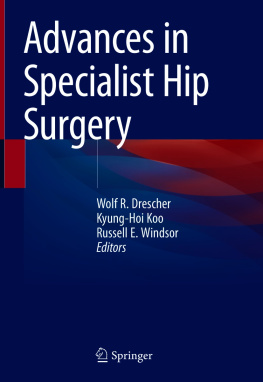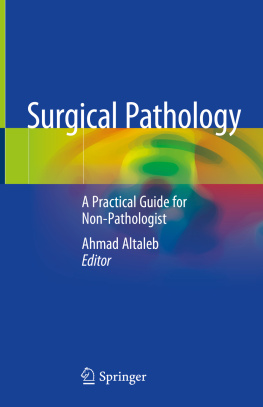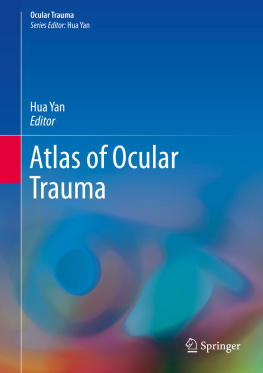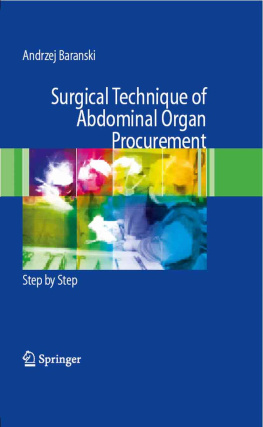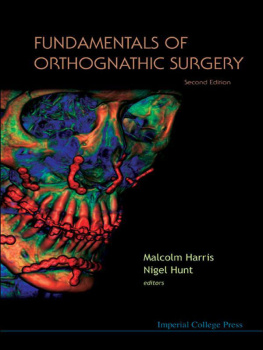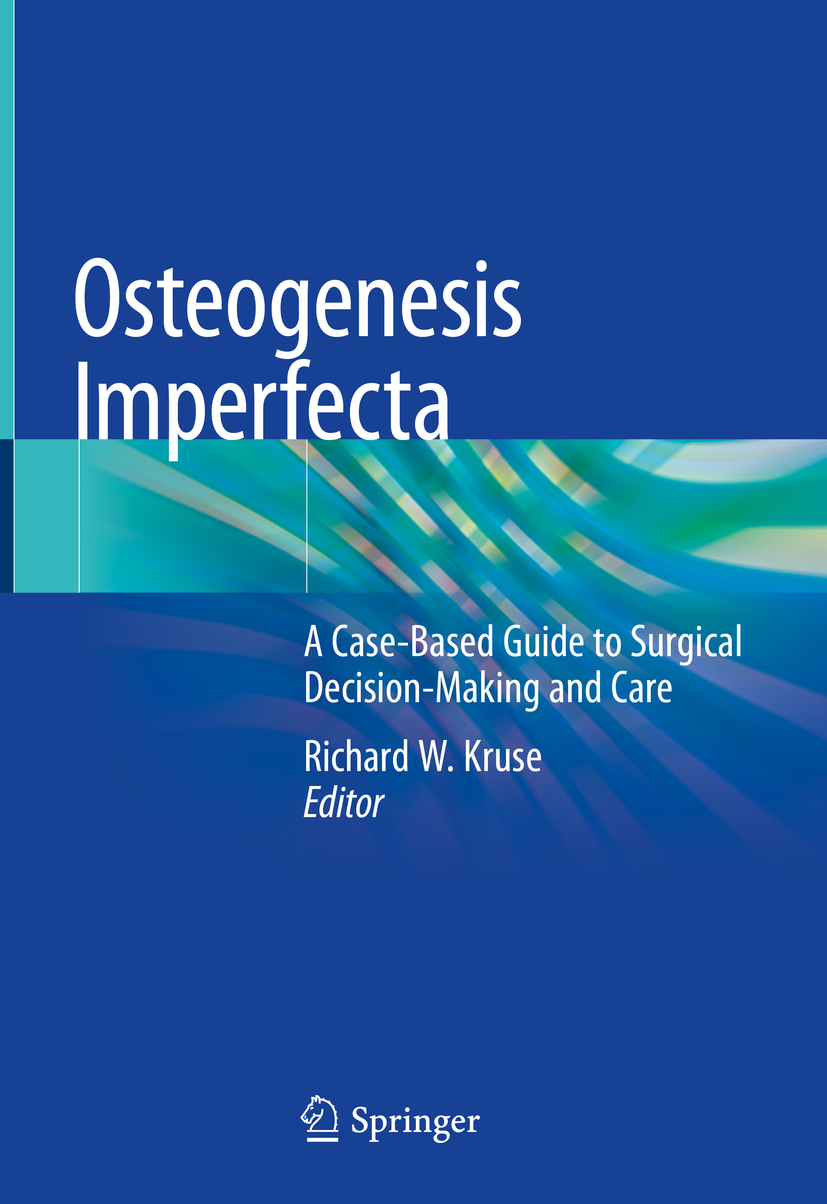Editor
Richard W. Kruse
Department of Orthopaedic Surgery, Nemours/Alfred I. Dupont Hospital for Children, Wilmington, DE, USA
ISBN 978-3-030-42526-5 e-ISBN 978-3-030-42527-2
https://doi.org/10.1007/978-3-030-42527-2
Springer Nature Switzerland AG 2020
This work is subject to copyright. All rights are reserved by the Publisher, whether the whole or part of the material is concerned, specifically the rights of translation, reprinting, reuse of illustrations, recitation, broadcasting, reproduction on microfilms or in any other physical way, and transmission or information storage and retrieval, electronic adaptation, computer software, or by similar or dissimilar methodology now known or hereafter developed.
The use of general descriptive names, registered names, trademarks, service marks, etc. in this publication does not imply, even in the absence of a specific statement, that such names are exempt from the relevant protective laws and regulations and therefore free for general use.
The publisher, the authors and the editors are safe to assume that the advice and information in this book are believed to be true and accurate at the date of publication. Neither the publisher nor the authors or the editors give a warranty, expressed or implied, with respect to the material contained herein or for any errors or omissions that may have been made. The publisher remains neutral with regard to jurisdictional claims in published maps and institutional affiliations.
This Springer imprint is published by the registered company Springer Nature Switzerland AG
The registered company address is: Gewerbestrasse 11, 6330 Cham, Switzerland
Preface Why This Book?
Life is the art of drawing sufficient conclusions from insufficient premises. Samuel Butler
This book is intended to provide a detailed approach to the orthopaedic surgical care of patients with osteogenesis imperfecta (OI). Surgeons dealing with OI quickly learn the complexity of challenges in treating the extreme variability of the disease. In addition, from the care of routine fractures to the complexities of spine surgery, each patient is somewhat unique, with their own needs and abilities. The ultimate goals of surgery must be specifically tailored to improve the life of the patient as an individual. More so than in many other conditions, a successful surgical outcome depends on managing the total care of the patient, which surgeons need to understand. This is a message that permeates this book.
At our current state of knowledge, we are not completely able to predict the success or utility of a specific preoperative plan in patients with OI. Procedures may not go as nicely illustrated in a technique manual. Stuff happens. Surgeons must be able to adapt rapidly and adopt new approaches to the surgical procedure. Each operation may become a real-time iterative event with many changes in plan on the fly.
This book is intended to take a deep dive into these complexities. Nonsurgeon readers will also benefit in being able to learn the challenges faced by their surgical colleagues. So all clinicians, researchers, and ultimately patients will benefit from knowledge sharing. Caring for OI is truly a team effort.
This book is
notan introduction to OI, a basic surgical technique manual, an exhaustive basic science text, or a theoretical review. It is meant to be a resource for surgeons in facing the complexities of OI surgery and to learn to think about the patient as an individual with unique needs and to have options available in the surgical theater. To achieve this goal, an understanding of overall care is required. Therefore, the book is divided into three sections:
Medical/Non-operative Care: To guide surgeons already familiar with OI on overall care planning of the patient through the patients lifespan
Decision-Making: To understand the scientific literature and principles in the appropriate planning of surgery
Execution: To benefit from the experience of experts in thespecificsof surgical procedures through illustrative case presentations
The structure of the book allows each topic to be read as a stand-alone chapter, but the overall flow of the book is general to specific. This necessarily will lead to some repetition of discussion. The reader should anticipate this.
Principles guide all surgery. An effort has been made to cite the scientific literature to guide decision-making. Where the current literature often falls short is in dealing with actual surgical care. I have asked each author to be as detailed as possible in providing guiding principles and the specifics of their treatment approach in order to add clinical value to the book.
My intent as editor is to also address unique challenges faced by physicians and surgeons worldwide. Each chapter is authored by a specific content expert chosen to add a global view. All authors are practicing expert clinicians and academicians. The reader will benefit from understanding their opinions and thoughts on care.
It is my hope that the sharing of this knowledge is used to benefit the lives of patients with OI worldwide.
Richard W. Kruse
Wilmington, DE, USA
Acknowledgments
Without a doubt, I would like to first thank the OI community the patients, families, and caregivers who motivated me throughout my professional career. Through adversity, we often find strength, and seeing adversity faced on a daily basis by the OI community is truly worthy of reverence. I am honored to be a part of their lives.
I have been blessed with exemplary mentors and pillars in the clinical care of OI, particularly Drs. Francis Glorieux and Francois Fassier, whose guidance and friendship I value beyond measure.
This book is dedicated to James Richard Bowen, MD, for inspiring me to be in pediatric orthopaedics and for being the first to expose me to caring for OI and to encourage (pushed, prodded, bugged) me to pursue it as a specialty.
The intellectual journey of improving the lives of patients is the mission of all the authors of this book. Our passion is evident in our writing and in all we do. We learn from each other, and what I most enjoy is the openness of our discussions and intellectual interactions. Never stop exploring as the saying goes.
Thanks to my mentee Jeanne Franzone, MD, who will carry the torch for OI care as a leader of the next generation of surgeons.



